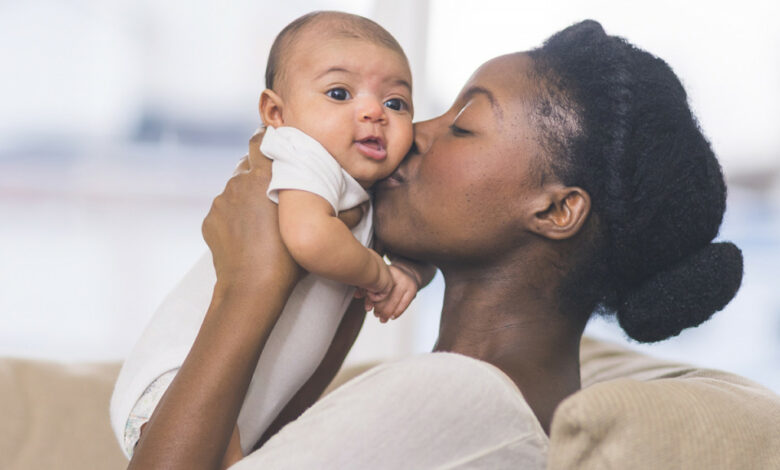8 Health Risks Associated With Kissing Infants

8 Health Risks Associated With Kissing Infants. The arrival of a new bundle of joy is always a cause for celebration. Showering the newborn with kisses is close to impossible. But we should try by all means to stop that because the risks of kissing infants are serious.
1. Cold Sores
Also known as fever blisters or oral herpes, your baby can be afflicted with this condition when kissed by an adult who has a cold sore. It is caused by the herpes simplex virus type 1 (HSV 1) and starts off as a small blister around the lips or mouth. However, it can spread to other parts of the face as well, such as the nose, cheeks, and chin. The issue also remains that once the virus enters the body, it stays for life.
2. Respiratory Illness Due to Exposure to RSV (Respiratory Syncytial Virus)
RSV leads to a condition where a baby’s lungs get infected, making breathing difficult for the baby. Besides, it’s highly contagious, making it quite difficult to prevent young kids from getting infected. If the infected child or adult approaches and kisses your baby, the virus will pass on to the baby. In babies, the air tubes for breathing are of a tiny size and very thin, so inflammation caused by infection can prove dangerous; more so in the case of premature babies who already have a much weaker immune system than their peers born at term.
3. Food Allergies
Many kids and adults face allergies resulting from some or the other food. People may be unaware of gluten present in their lipstick, which may be harmful for a child who is having celiac disease. It is best to discourage people from kissing on or near the baby’s lips because you can never be sure of what food the person might have consumed, pieces of which could still be lingering in their mouth.
4. Heightened Risk of Cancer Due to Exposure to Toxic Chemicals
Skincare products are known to contain chemicals that help adults look young and fresh. Such products may contain parabens, formaldehyde, artificial colours, and much more. These are considered to be endocrine interrupters and have even been found to be associated with risks of cancer. Hence, it is advisable that people who use such products avoid kissing your baby. This way, you can safeguard your baby from getting exposed to cosmetics containing such toxic chemicals.
5. ‘Kissing Disease’
‘Kissing Disease’ is a nickname given to the term ‘mononucleosis’, an infection which is passed through saliva, often through kissing. Although it is known to occur more commonly among teenagers and adults, it can affect infants too. In infants and children, the condition results in a runny nose or cranky behaviour and may also lead to respiratory problems in rare cases. It is a viral disease and does not have any treatment.
6. Cavities
We all are aware of the fact that not maintaining oral hygiene can lead to cavities in the teeth. A lesser-known fact is that the kisses showered on a baby may also lead to cavities in the child’s teeth. The bacteria called streptococcus mutans present in one’s saliva, which, when passed on to the child, can lead to cavities in his tiny teeth.
7. Weakened Immune System
Babies are most vulnerable to illnesses during their initial few months when their gut bacteria are still in the developmental stage. For this reason, any kid or adult who wishes to come in contact with your baby has to ensure that they have washed their hands well and do not have any signs of illness. There may be cases where an adult or child, unaware of their illness, comes and kisses the baby. In such cases, the baby gets exposed to germs and has to fight it with weak immunity.
8. Hand, Foot and Mouth Disease
Hand, foot and mouth disease usually occurs in children at some point in their childhood and is marked by sores which pop up all over the child’s body and mouth. It can be spread through actions of close contact, which includes kissing. Children feel tired, have a sore throat and get cranky in such conditions. They even suffer from fever. You should ensure that any infected adult or child does not come in close contact with your baby or kiss him even on his little hands.




